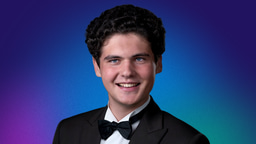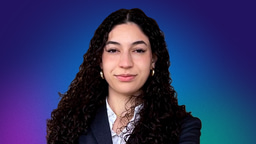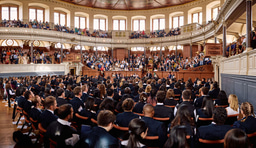Scholar Spotlight - Freddie Fallon

Discover more Scholar Spotlights.
Freddie Fallon, a Laidlaw Scholar at Trinity College Dublin, explores Soil Compaction and Plant Biodiversity in Green Spaces
Research Title:
Soil Compaction and Plant Biodiversity in Green Spaces Along Dublin's Urbanisation Gradient
My research project explores the intersection of soil science, biodiversity, and urban planning in Dublin, focusing on how soil compaction and plant diversity correlate at different levels of urbanisation. Using data from 21 randomly selected green spaces across an urbanisation gradient, I measured soil bulk density and surveyed plant species diversity, while urbanisation levels were determined via Copernicus UrbanAtlas and Keplab UrbanizationIndex tools. Though the study found no statistically significant correlations, the observed trends aligned with expectations: more compacted soil and lower biodiversity in more urbanised areas. This project highlights a critical gap in current environmental research, the underrepresentation of soil health in urban ecological planning. By applying the concept of soil health, which is traditionally reserved for agricultural context, to urban ecosystems, my research lays groundwork for more holistic and ecologically resilient urban planning studies.

Urban green spaces are increasingly valued for their biodiversity and climate resilience, but without considering soil structure, their full ecological function is compromised. Throughout the project, I aimed to underscore the value of integrating community narratives into scientific research. Although time constraints prevented formal inclusion of oral histories, informal conversations during fieldwork revealed a rich tapestry of local knowledge and emotional investment in public green spaces. Moving forward, I aim to incorporate these social dimensions more explicitly. Ultimately, the concepts underpinning my research have real-world potential to inform urban design that values both ecological function and community connection. By bridging soil science, urban planning, and social insight, I hope to contribute to greener, healthier, and more inclusive urban futures.

Where did your passion for this research originate?
I grew up in an idyllic town in western Massachusetts, spending every evening in the forests nearby. In the 17th century, both western Massachusetts and Ireland underwent a major environmental and economic shift towards English-style pasture farming, leading to widespread deforestation (Freeman). Until the 1990s, western Massachusetts afforested more quickly than almost anywhere else in the world, transforming the landscape and restoring critical ecosystems (Jeon et al.). When I moved to Dublin, I instantly noticed the similarity in natural histories and environmental processes between these two places I call home. Now, as I enter the final year of my degree, I aim to bring together environmental humanities, comparative ecology, and urban planning when pursuing my passion for forest ecology.

How have you applied your leadership skills in real life?
My style of leadership combines scientific inquiry with educational innovation and community engagement which is rooted in the Laidlaw Foundation's core belief that knowledge, shared wisely and equitably, can transform lives and ecosystems. My research project not only bridged gaps between ecology and urban planning but also engaged the public, sparking local conversations about land use and environmental stewardship. These interactions reinforced a key insight: leadership in science must also listen to stories, context, and the community.In tandem with field research, my role in helping develop Trinity College Dublin’s first Education for Sustainable Development (ESD) Common Module offered a chance to lead from behind the scenes. Co-creating interdisciplinary content to align with UN Sustainable Development Goals (SDGs), I demonstrated the Laidlaw values of “filling heads, hearts, and hands,” and helped ensure that the next generation approaches sustainability with curiosity, ambition, and empathy. Across each academic and profession role I’ve held, other leaders have reaffirmed that impactful leadership is both evidence-driven and deeply human. It requires bravery to challenge academic silos, determination to work across disciplines, and a commitment to equity, ensuring diverse voices and lived experiences shape our collective future. Leadership, to me, is not just about forging new paths, but about pulling others up behind me. Whether through mentoring peers, presenting research to industry professionals, or writing for public-facing platforms, I aim to dismantle barriers, intellectual, social, and environmenta, and inspire others to lead with vision, grit, and hope.
Freddie's Top Leadership Tips:
- Feigned confidence is just as good as genuine confidence.
- Know when to say “no” and “I don’t know”.
- Try everything, even if you feel insufficient or underqualified.
- Uplift your peers and colleagues! Active kindness is the backbone of strong teams.
- Always be guided by your core beliefs and ethics.
What does it mean for you to be a Laidlaw Scholar?
Being a Laidlaw Scholar means that I’ll always be supported by the Laidlaw Foundation, my college’s Laidlaw team, and all the friends and connections I’ve made through this programme. The guidance I’ve received from the Laidlaw Foundation on project management, networking, professionalism and self-sufficiency, bolstered by the wealth of resources available to me as a Scholar, has truly transformed my career trajectory for the better. The academic and industry connections I made at the Laidlaw Scholars conference, as well as through my college’s cohort and the Laidlaw Scholars Network, have already proved invaluable in finding new opportunities and developing professional networks.
Which particular leaders inspire you the most and why?
The leaders who’ve guided me most haven’t won Nobel Peace Prizes or made front page of the Irish Times, they’ve been my neighbours, my friends, and family. The women I grew up with show me that effective leadership isn’t about domination or influence, it’s about mutual support and building networks of people with the same goals and ambitions. Often, vertical leadership structures are lauded as the only efficient and lasting means to create change, but the most meaningful and long-term change I’ve seen in my own communities has been from people without MBAs and PhDs, it’s come from people who care deeply about a cause and the people suffering for it.
Briefly describe a scene from the future you are striving to create.
Have you ever been woken by birdsong? Swam in a stream behind your home? Played with frogs in a little pond? These natural experiences are hugely impactful for people from every corner of the world, and yet standard western urban planning styles make very little effort to cultivate nature in cities. Humans and nature have the right to thrive alongside each other, interconnected, and we’d be happier and healthier for it. Someday, even city kids will know Ireland’s 102 native bee species, people can watch bats swoop over the Liffey, and freshwater pearl mussels will thrive in the Dodder.
Quick-fire Questions
📺 Currently Binging:

Solibo Magnificent by Patrick Chamoiseau

🎶 My anthem:
Quarter Pounder by Gezebelle Gaburgably

🌈 Something that made me feel joy recently:
Forest walks! Everything about them, forest walks alone, with family, with friends, with community members, I just love being surrounded by trees!
I’d like to plug SharkLab Malta and all of the fantastic work they’re doing for youth environmental education and elasmobranch research in Malta.
Freddie's website: elfredfallon.com
LinkedIn: https://www.linkedin.com/in/elfriede-diann-fallon/?originalSubdomain=ie
If you want to learn more about Freddie's work, explore their research here and follow them on LinkedIn. Freddie is a Laidlaw Undergraduate Leadership and Research Scholar at @Trinity College Dublin. Become a Laidlaw Scholar to conduct a research project of your choice, develop your leadership skills, and join a global community of changemakers from world-leading universities.
Find out more about the Laidlaw Scholars Undergraduate Leadership and Research Programme.
🔦 Discover more Scholar Spotlights:
⚡️ Anuj (AJ) Manchanda, a Laidlaw Scholar at the University of Toronto, delves into how Environmental CSR initiatives shape consumer choices.
⚡️ Sebastian Glasper, a Laidlaw Scholar at the University of Leeds, explores social media’s role in mitigating loneliness among older adults.
⚡️ Sophia Waseem Khan, a Laidlaw Scholar at Durham University, champions sustainable agriculture through innovative ion recovery.






Please sign in
If you are a registered user on Laidlaw Scholars Network, please sign in